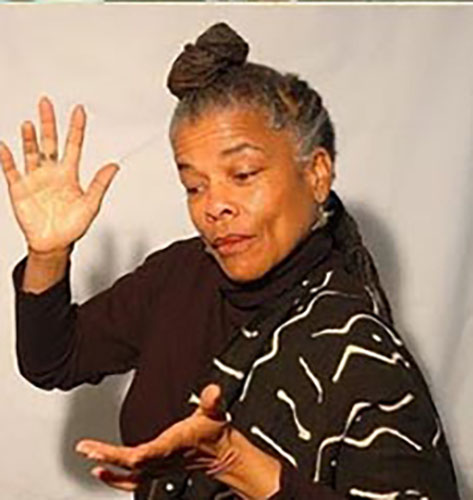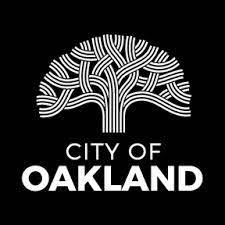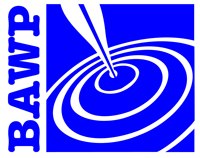
by Tureeda Mikell
Warmth of Oakland Sun – Queen Thurston
Who is Queen Thurston?
Parents told Queen, she received her name from the bible story of Esther who married a King and became a Queen. Since Queen Thurston’s arrival to Oakland, she has become one of its rare jewels. She is a widowed mother of six children; three girls and three boys, who have made her a grandmother, great-grandmother, great great grandmother, and great great great grandmother.
As a retired nurse, active in the church, an activist in Oakland’s African-American community, she has worked with the Oakland Unified School District alongside Mr. Oscar Wright, author and activist. Following the 1989 Loma Prieta earthquake, which resulted in the collapse of the Cypress Freeway, Queen helped organize the Coalition for West Oakland Revitalization. Queen became active in the West Oakland’s Community Advisory Group which was created through the Oakland Base Reuse Authority and was active in the fate of the Oakland Army Base. She also continues to work toward preserving the Oakland Auditorium of which she carries incredible memories.
Reason for First Migration
My parents, Alveiner and Hartie Thurston, felt I’d benefit living away from the farmlands of Texas. They wanted more for their youngest child. There were five of us; three older brothers, an older sister, and me, the baby.
When I traveled to Egypt in 1985, I could see Texas was a lot like Egypt. Had a lot of sand and oil like Egypt and used the same ram’s horn to call the cows, like Egypt. But what really surprised me was how they used the exact same sugar cane press my father’s horses would pull round and round to extract juice from the cane. It was done EXACTLY, exactly, the same way it was done in Egypt. That truly amazed me. It seemed like Egypt was a past life that followed me to Marquez to make me remember where I came from.
“Get the S out your back. Your name is not Sam. Don’t slump and don’t slouch.”
In Texas we cooked everything on a wood burning stove, and what we grew, we ate, or my mother canned. My dinner favorite was roasted corn and in the morning I remember the smells of coffee, bacon, eggs and grits. I loved grits! Those morning smells were comforting. We never felt danger. We were segregated, protected.
We were more of a peaceful people, at that time. We didn’t worry about racism because there was none. School, church and bible study was the expected routine in our Black community. Wade in the Water and Steal Away are the songs I remember most. Life was simple.
There was always a kind of responsibility we knew we had to have as children no matter our age. And if you knew something that your older brother didn’t know to do, he had to do it if it needed to be done. Our parents would tell us, if you have a question you come to us, no matter what the subject is.
Daddy wanted us to stand tall and would tell us if he caught us with our head down,
“Get the S out your back. Your name is not Sam. Don’t slump and don’t slouch.”
He wanted us to demonstrate pride in ourselves. Daddy was a proud man, standing tall and erect. Never once did I ever see him raise his voice or his hand to my mother.
When our parents would drive into town and be gone for the better part of the day, the eldest brother watching after us would sometimes play tricks and make grease cake from used Crisco shortening. Crisco was a type of shortening used back then to make cake or fry food. Grease cake sounds bad, but he made it taste light, fluffy, and delicious.
Queen said this with eyes pleasurably looking back on a distant past.
Big brother would always ask, “If I give you some, you won’t tell, right?”
“No, I won’t tell.” I’d tell him, but being the youngest in the bunch, if mama asked, I’d tell.
Queen laughs.
You can’t find those flavors anymore. The quality of ingredients, spices and condiments have changed.
Our first migration took place in1938. I was seven years old when we moved from Marquez, Texas in a black T-Model Ford. I didn’t miss anything when we left. I had my family. I would always hear them talk about how I’d have better opportunities if we left Texas. It was a long ride, maybe a day or so, I can’t remember. Mama packed all we’d needed to eat on the way. Fried chicken, biscuits, grape or orange juice, water, or tea. My father’s brother’s cousin came with his truck to Marquez to pack most of the house belongings. He drove behind us until we arrived in Ada, Oklahoma.
We got a place next door to Uncle Tom, my father’s brother and Aunt Maggie, his wife. I remember the swing on their front porch. A gourd vine grew up and over the top bar of the swing. You could use the gourds for dipping water once you hollowed them out.
Uncle Tom was a Black policeman in town. Ada was a small segregated town of Blacks and Native Americans with a few white families in the downtown area. Everything was Black owned or Native owned in our area. No one really wanted to live in a White neighborhood. When the Black principal of the school moved, he moved to what was called, the new Addition, a complex of newly built homes built by Blacks for Blacks to purchase. Our home was a rental, but there were many Black men who were Masons, known to build their own homes. Black men were very independent and relied on each other when absolutely necessary. For protection, sabers, a long sharp knife were always hung near or over the entrance of the door in our house. Every Black family we knew had this.
The Logons were Native Americans that lived two houses down from us. There was another Native American elder with three daughters who was married to a Black woman. He was known to be very spiritual. They lived up the street near the alley. If anyone passed, he’d offer them a long loud heartfelt prayer all day into the night to help them move safely on to the spirit world. There was time as children we’d complain but could hear something in his voice that touched us, and we stopped.
Aunt Maggie was a great cook. I didn’t know you could boil corn until she prepared it for us. It was really good. We always had roasted corn in Texas. Seems like Mama and Aunt Maggie were always swapping recipes. Like my Mama and sister, Aunt Maggie could sew and crochet anything. I could sew, but never received the gift they could do, even though I so admired what they could do. If they wanted something, they simply made it! It seemed to me the women really wanted to be as independent as possible.
They’d go downtown when it was absolutely necessary. I didn’t know the White part of downtown Ada was racist until we went there. They’d always make you wait a while in line if you wanted to buy something, by placing others ahead of you.
I loved the new school and being in the school band. I played the coronet. My band wore a three-piece gold and blue uniform with a matching hat. Every year there’d be band competition among all the Black elementary and high schools coming in from different cities. That’s the way it was back then. It was segregated, so all the schools we competed against were Black. Those competitions were a lot of fun.
When the war started, my two older brothers were drafted into the war and oldest brother got married. I hated that he got married. I felt she took my brother away from me. I remember when she came to visit my cousin’s wife’s sister. She took one look at my brother and asked, “Who is that?” Oh lord, I said to myself, and that was it.
Second Migration
We moved out to California because my mother’s brother-in-law suggested to my father that he could make a better living as a Pullman Porter in California. So they made arrangements, packed up everything, and moved to Oakland, CA by train when I was twelve years-old. My brother’s new wife came with us while he went to war.
The only thing I ever kind of regret leaving is our Victrola record player. I didn’t feel too attached to it, but we sure did have a lot of fun with that Victrola. It was the kind you had to wind up, lift the needle, and place it gently on the record. I had to reconcile those days were gone.
Aunty picked us up from Western Pacific Train Station on 7th Street Station near the ferry in Oakland and took us to her house in Berkeley on Stuart Street. We stayed there a few days until our apartment was ready. Aunty had a very nice home with a beautiful backyard full of fruit trees. She’d always have wonderful parties and owned a pool hall on Sacramento Street and was well respected in her community. If her husband was out of town on business, no one ever messed with her, in fact they look after her while he was out of town.
When we moved into our apartment on 24th and Poplar in West Oakland, it was an all Black complex. I remember our apartment being right next to what was called the Switch House. It was only about four to five feet wide. The clerk sat inside the booth until it was time to let people know which train was coming; the A or the B. The A train would take us right in front of the Oakland Auditorium. A couple of the other trains that would go to San Francisco were the F and the C. It would take you to 40th and San Pablo in Emeryville across from Doggie Diner. I remember the smell of hotdogs and mustard. Those hotdogs were sure good back then.
My brother’s wife continued to live with us and has been in the family ever since. My father made a good living as a Pullman Porter and with my brother’s service in the air force, we were able to buy a home on Magnolia in West Oakland. When my brother came home from the war, he and his wife lived with us until they saved enough to buy a home. Love is something else! Queen laughs.
DeFremery Park on 18th and Adeline raised me. It used to be the Black U. S. O., United. Servicemen Organization. Dorothy Pitts, a Black woman, was the director. The family who owned the property, later willed it to the Oakland community. That’s when it became DeFremery Park. Dorothy Pitts, remained the director and ran a tight ship. She wouldn’t allow anyone showing out or being disrespectful. Wasn’t much of that happening back then anyway.
There were all kinds of classes you could sign-up for like, modern dance with Ruth Beckford, etiquette, music, and ballroom dancing. I loved ballroom dancing but when my partner got drafted in the Viet Nam war and was killed, that was life changing.
I attended Oakland Tech and graduated from Berkeley High Night school. I later trained as an L. V. N. at Fairmont Hayward School of Nursing. After I graduated, I began working at Fairmount Hospital in 1965 and retired in 1989.
I loved going to events at the Oakland Auditorium. I saw big bands like Lionel Hampton, watched The GlobeTrotters perform their skills, and the Christmas Extravaganzas were beautiful. Nearly all my children at some point in time participated in that event. But what was truly exciting was to see the world’s fastest human, Jesse Owens! He really upset Hitler’s belief about a superior race in the Olympics of 1936. As a young adult, hearing him speak made Black young and old alike feel better about ourselves.
I hate they’re trying to get rid of the Oakland Auditorium and the Calvin Simons Theater.
So many amazing memories.
Queen attends Wo’se Community of The Sacred African Wa. She is a strong believer and has always demonstrated to me, you should always know where you come from.
Thank you, Queen Thurston, for sharing your Warmth of an Oakland Sun!

Tureeda Mikell
Tureeda aka ToRead ah, is an award-winning, internationally recognized poet and storyteller. She is known as a Story Medicine Woman. She combines life sciences that seals to reveal holism that heal relationships of body, mind, and spirit via Story poetry and history. She has been published and or performed with Maya Angelou, Sonia Sanchez, Al Young, Amiri & Amini Baraka, Eugene Redmond, The Last Poets, Rita Dove, Lucille Clifton, Audrey Lorde and many more.


